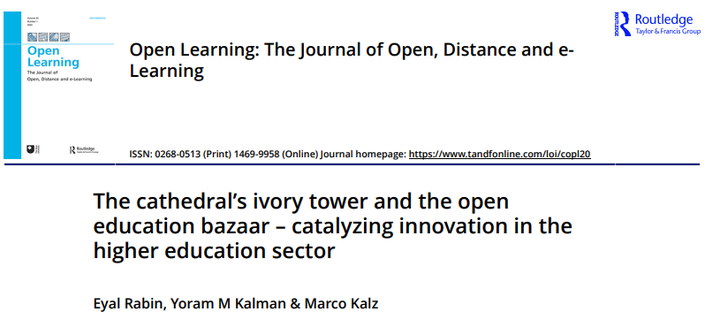The cathedral’s ivory tower and the open education bazaar – catalyzing innovation in the higher education sector

Abstract
Will open education replace traditional higher education, or augment it? Digital innovation in the higher education sector is fuelling speculation about the transformation of higher education and the future role of universities. Much of the speculation makes questionable implicit assumptions about current and future business models in the higher education sector. This conceptual paper applies an innovation management perspective to critically examine the use and misuse of the business model concept in the context of digital innovation in the higher education sector. Using Raymond’s metaphor of the cathedral and the bazaar which contrasted traditional commercial software development (the cathedral) with open source software development (the bazaar). We analogise this relationship with the relationship between ‘cathedral-type’ business models in traditional higher education (e.g. universities) and ‘bazaar-type’ business models in open education (e.g. open educational resource publishers). Using the historical perspective we now have on the software industry’s evolution we critique the ubiquitous replacement narrative of destruction and disruption of the sector, and propose an alternative narrative of interdependence and mutual innovative catalysis. We predict that higher education ecosystems will be based on synergistic relationships between organisations that represent many gradations on the continuum between ‘cathedral-type’ and ‘bazaar-type’ organisations.
Rabin, E., Kalman, Y. M., & Kalz, M. (2020). The cathedral’s ivory tower and the open education bazaar–catalyzing innovation in the higher education sector. Open Learning: The Journal of Open, Distance and e-Learning, 35(1), 82-99. https://doi.org/10.1080/02680513.2019.1662285